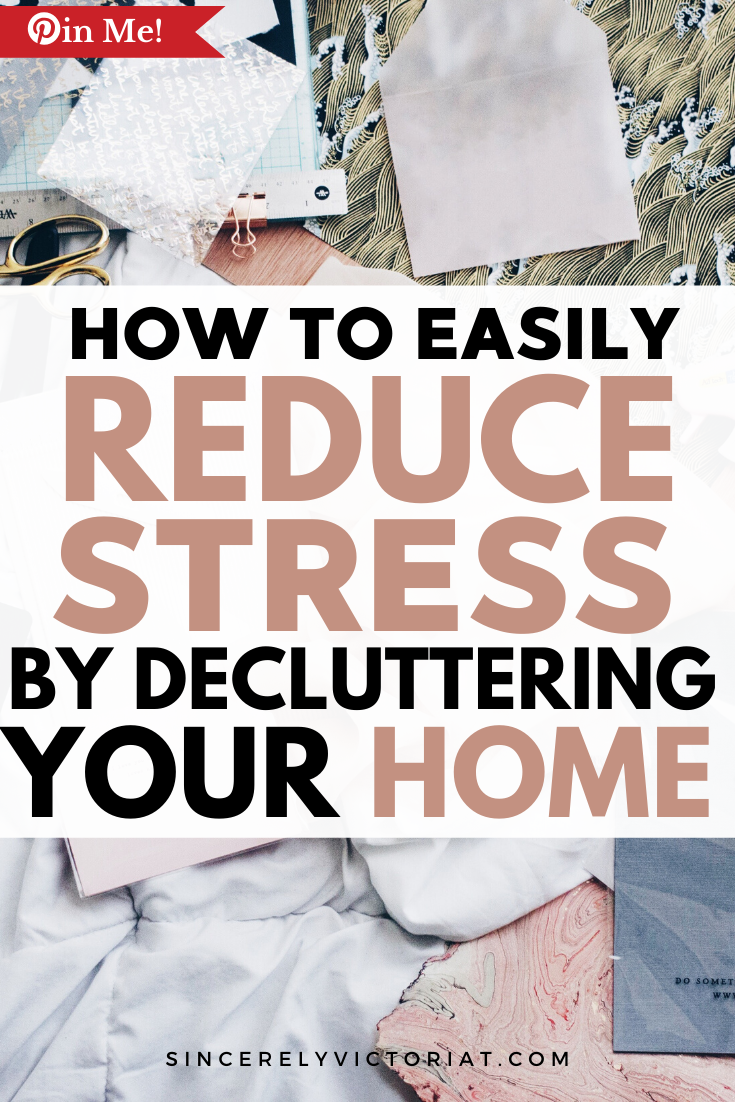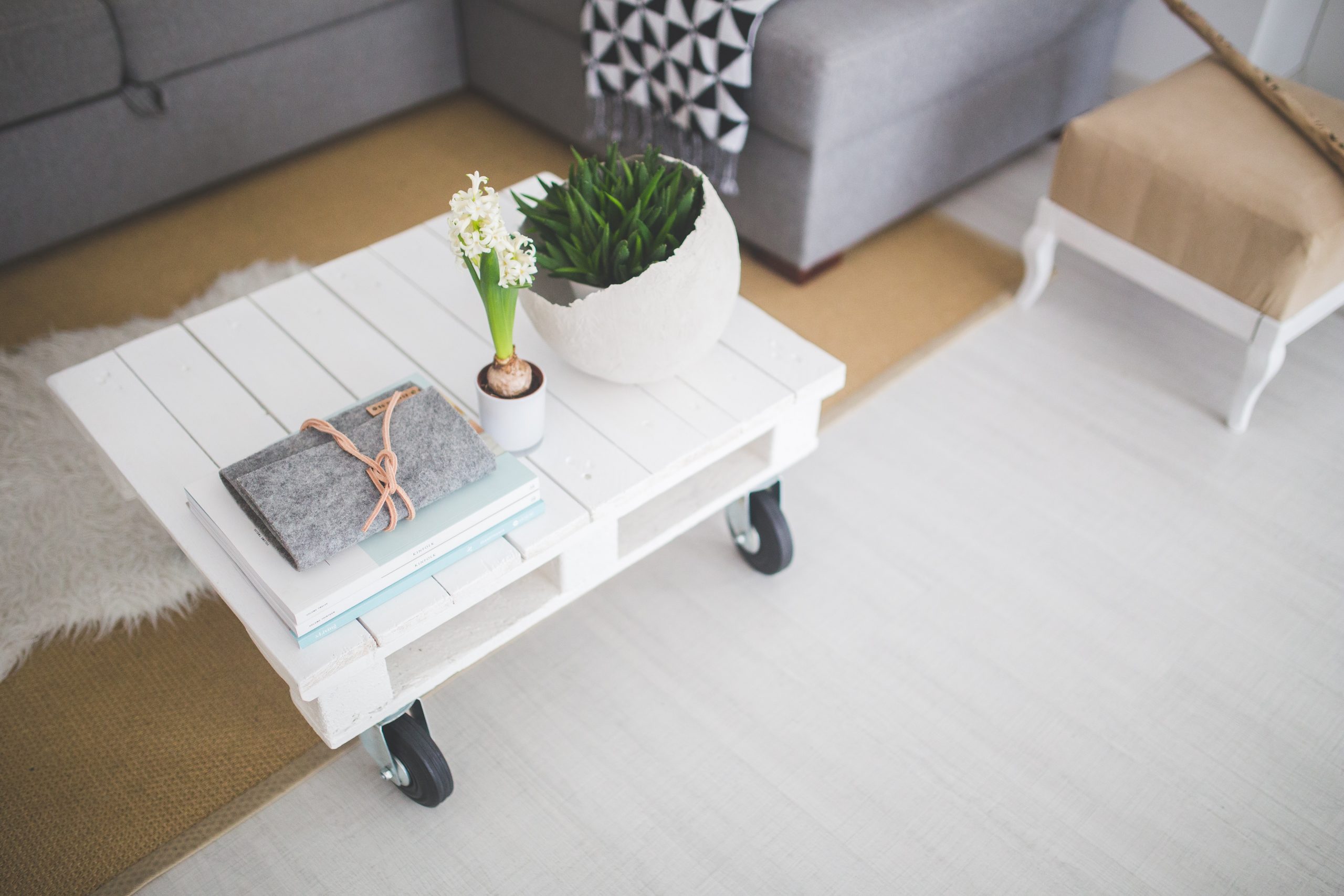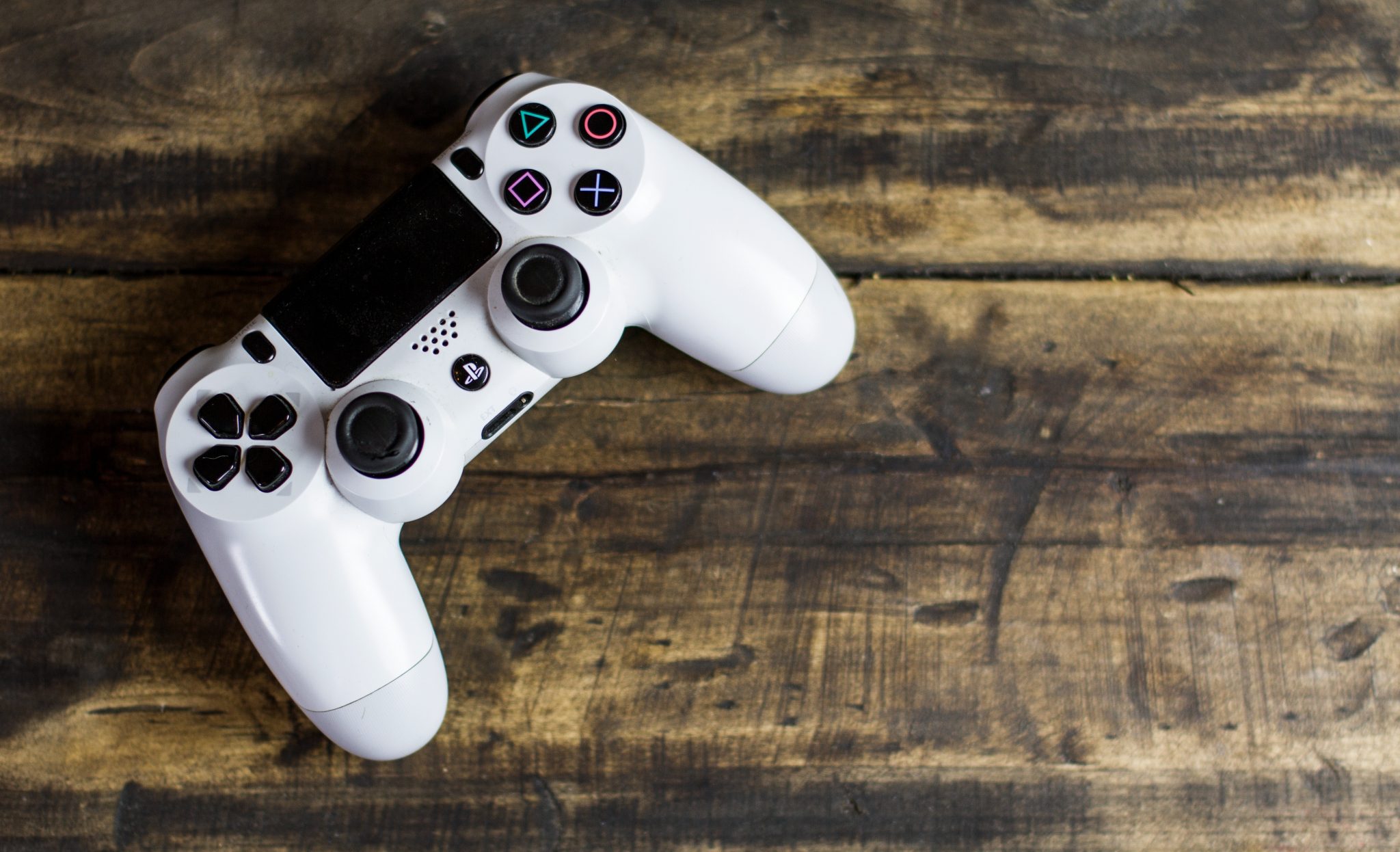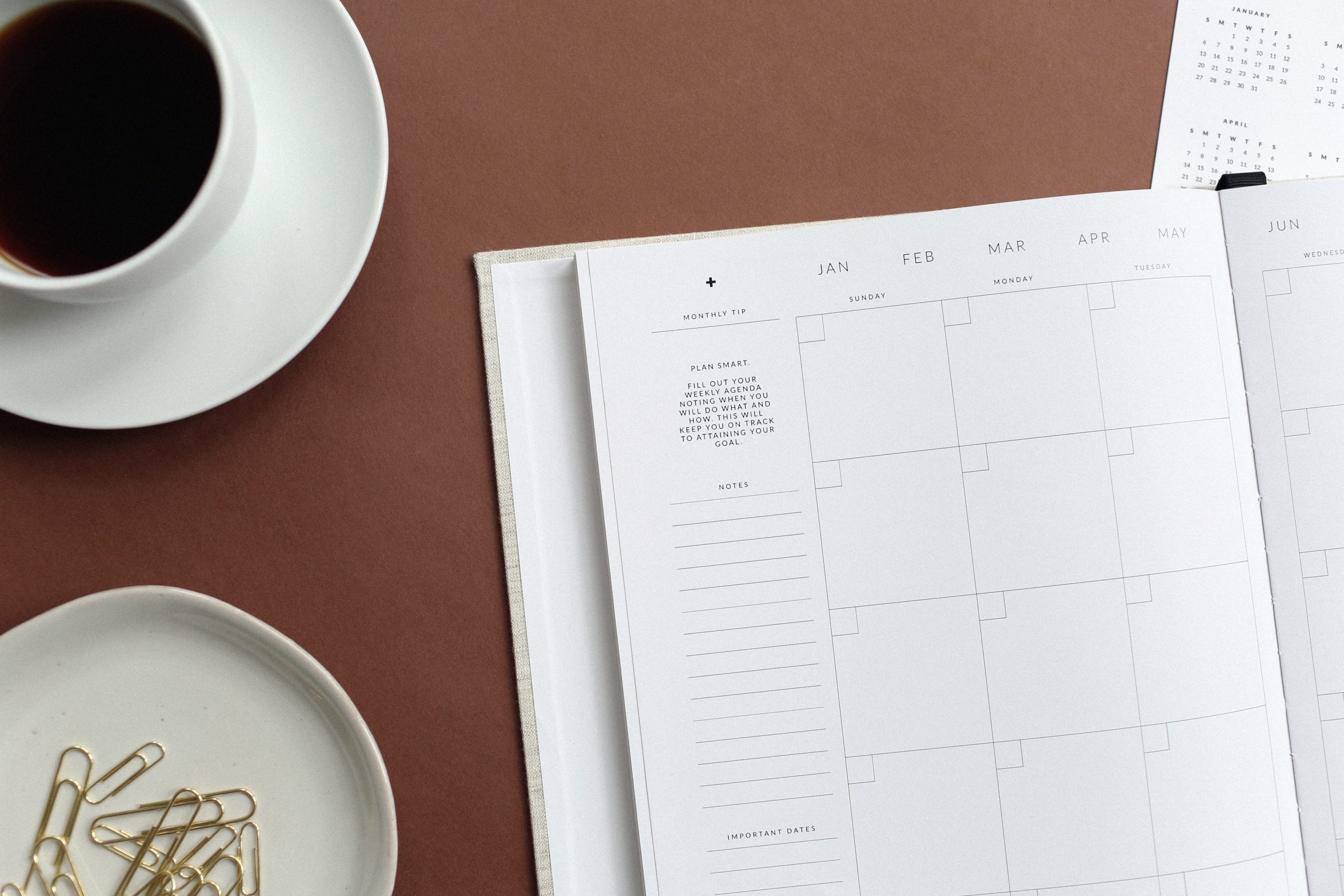Did you know that decluttering your home can reduce stress and improve your mental health? Studies show a clutter-free environment reduces stress by allowing you to perform daily tasks more efficiently. In this post, I’m sharing simple tips on how to reduce your stress by decluttering your home.
If you need instant gratification as I do, decluttering may help you to feel better about yourself and more accomplished throughout the day. Just the simple tasks of cleaning, organizing, or decluttering a messy area can feel like a big accomplishment. Self-care doesn’t always look like a trip to the spa or getting a pedicure. Sometimes, self-care includes decluttering your home to create a peaceful environment where you can relax and unwind.
Studies show that straightening out the physical things in your life can also bring clarity to the mental things.
While I am trying to send emails, cook dinner, and care for the kids, the last thing I want to deal with is a mess. Having to interrupt what I’m currently doing to go looking for something else just adds to my stress. As a busy mom who works from home, I need to be as productive and efficient as possible. To perform at my best, I like to keep my home and workspace neat and tidy. Instead of spending hours cleaning one day a week, each day I pick one area of my house and spend 20 minutes a day decluttering that area. By cleaning a little bit each day, our house stays neat all-year-round.
Decluttering your space can be freeing as you begin the process of getting rid of things you don’t need. Over time, the clutter you accumulate can have negative effects such as take up too much space in your home or remind you of things that you’d rather forget (such as old relationships or bad memories). It’s important to declutter often and free yourself from any tangible objects that don’t bring value to your life. If you aren’t careful, the tangible clutter in your home can subconsciously lead to mental clutter in your mind.
Unnecessary clutter is sneaky and can pile up quickly if you aren’t careful. When is the last time you examined your house for clutter? Take the first step to reduce your stress by decluttering your home. You may be able to get rid of more than you think. Examples of clutter include but are not limited to:
- old papers you no longer need
- emails 6+ months old
- small appliances you no longer use
- home and holiday decorations you no longer use
- broken things that no longer work
- gaudy knickknacks
- clothes that no longer fit
- old shoes that you no longer wear
- expired food and old spices
- broken toys
- old makeup
- stained towels
- old charging cables
- broken hangers
- old receipts and expired coupons
- gift cards with no value
- mismatched socks and gloves
- old purses
- empty boxes, containers, and bottles of cleaning supplies
- kids’ artwork
I’m not suggesting that your home needs to be Pinterest-level clean, but studies have shown that living in a clean and minimalist environment has been proven to keep stress levels low. Although easier said than done, keeping your home clean can benefit you in many ways. By having a neat and organized space, you never have to hunt or search for anything you own – making your life a whole lot easier. A clean home is much more aesthetically pleasing than a cluttered and messy one.
When it comes to keeping your home and workspace clean, find a routine that works best for you. Never feel pressured to follow anyone else’s home routine – instead, find a system that works for you. Include your family members in the tidying process and give rewards to your little ones when they clean up behind themselves. Don’t do it alone – keeping the house clean requires effort from everyone who lives in your home.

4 Simple Tips for Decluttering Your Home
1. Tackle one room at a time. If you have a lot of clutter in your home, you will need to start by tackling one area of your house at a time. Choose one room, and spend the day removing all unnecessary clutter and items that don’t belong in that space. By taking it one day at a time, you won’t feel the overwhelming burden of decluttering your entire house at once.
2. Create piles. When decluttering, organize your things into piles to quickly move through all of your items. Make a pile of things to keep, to throw away, and to donate. By creating piles, you can quickly sort through your things while determining where they should go.
3. Don’t be afraid to get rid of things you don’t use. Many times, we hold on to clothes that we may one day fit back into or unnecessary memorabilia that may have little to no value. If you are holding onto it, but don’t have use for it, you may be causing yourself more harm than good. Letting go of unnecessary things can be freeing, which is good for your mental health. If you don’t have use of an item but don’t feel comfortable throwing it away, consider donating items that are still edible, useable, and in good shape.
4. Declutter often. Once you have decluttered your home, you will need to make cleaning and decluttering a habit in your home. Schedule a block of time each day to tidy up the areas in your home that receive the most traffic. Don’t allow the clutter in your home to pile up – instead be proactive about the mess and tidy your home often.






Leave a Reply